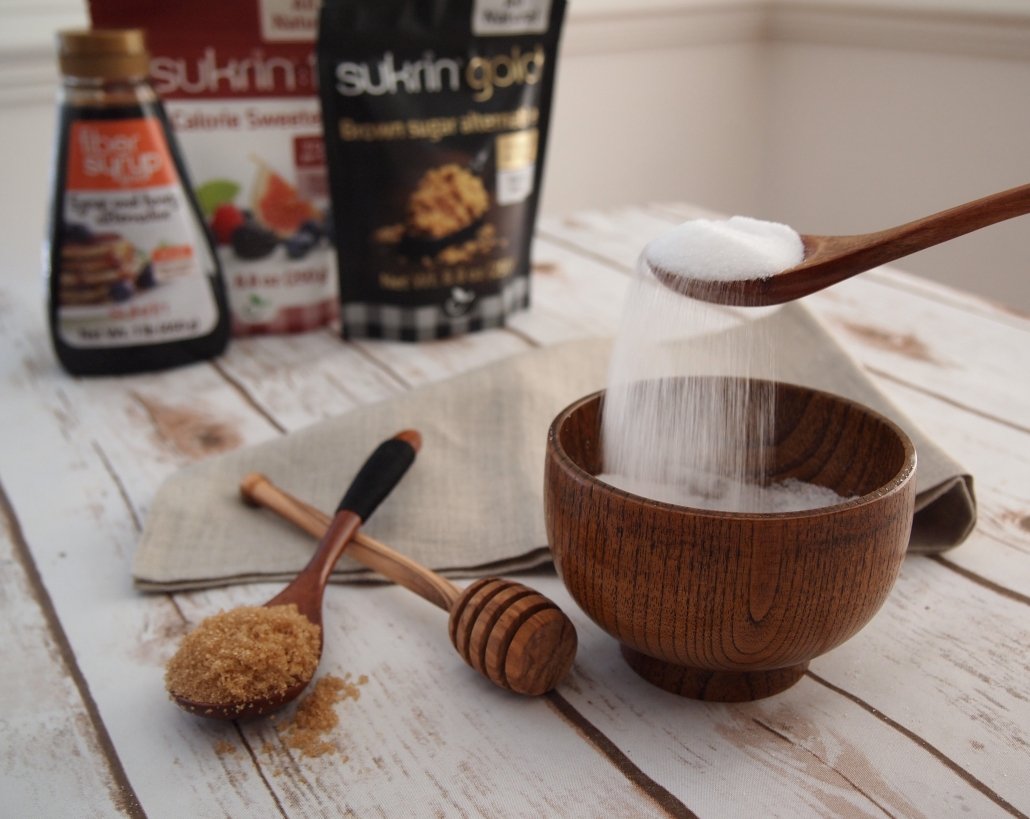Sukrin
SUKRIN products

General Information about the Product
Healthy and Natural Alternative to Regular, Unhealthy Sugar:
- Zero calories
- No harmful effects on teeth
- Looks and tastes like sugar
- 100% natural
- Does not cause blood sugar fluctuations = zero calories
- Acts as an antioxidant in the body
Sweet Taste without Calories and Carbohydrates:
- The product line offers natural sugar alternatives without any calories.
Why Choose This Product Line?
Natural Flavor:
- It has a pure, naturally sweet taste, resembling the look and consistency of traditional, unhealthy sugar.
- Its sweetness is approximately 70% compared to regular sugar, but it can be used in the same quantities as standard sugar.
- The product line includes a powdered sugar alternative, perfect for dusting, decoration, homemade marzipan, smoothies, and more.
Physiological Benefits:
- These products not only have zero calories and carbohydrates but also positively impact the body.
- By inhibiting the spread of bacteria responsible for tooth decay, the products protect teeth from cavities, promoting dental health with daily consumption.
- Studies show that the products have antioxidant properties, helping combat free radicals and potentially protecting against blood vessel damage caused by elevated blood sugar levels.
Calories and Glycemic Index - Compared to Other Sweeteners:
- All products in the product line are made from natural, non-genetically modified ingredients.
Frequently Asked Questions
Is It Natural?
- Yes. The products are based on Sukrin, a naturally occurring substance consumed by humans for a long time. Sukrin is found in certain fruits such as melons, pears, or grapes, as well as in fermented foods like cheese, wine, or soy sauce.
Is Sukrin the Same as Splenda (Sucralose) or Aspartame?
- No. Splenda® (Sucralose) and aspartame are not naturally occurring and are chemically produced substances, much sweeter than sugar. Sukrin is used in its pure form.
Is Sukrin the Same as Fructose?
- No. Fructose is a type of sugar found in fruits and contains calories. Sukrin is not a type of sugar and is calorie-free.
A Type of Carbohydrate?
- Yes and no. Sukrin is technically a carbohydrate, but it does not behave like conventional carbohydrates such as sugar or starch. It is not metabolized for energy but is excreted unchanged in the urine.
Why Does Consuming Sukrin Alone Cause a Cold Sensation in the Mouth?
- This sensation occurs when the crystal granules melt on the tongue, causing a momentary cool feeling. This is harmless and similar to the cool sensation experienced with xylitol or menthol consumption.
Can Sukrin Be Consumed by Those Sensitive to Candida?
- Yes, it is safe for individuals sensitive to candida, as the products do not provide nourishment for the candida fungus.
Can Diabetic Individuals Consume the Product?
- Yes. Sukrin does not affect blood sugar or insulin levels, making it suitable for diabetic diets.
Is It Safe for Individuals with Fructose Malabsorption?
- Yes. Sukrin does not contain fructose and does not convert to fructose in the human body.
How Is Sukrin Produced?
- Sukrin is produced using a fermentation process with dextrose (glucose). Natural microorganisms are added, initiating fermentation. The result is a filtered, rinsed, and crystallized substance. The crystals are washed again and dried with warm air. The entire process is chemical-free and ensures the raw material is non-genetically modified.
Is Sukrin Approved in the European Union?
- Yes. Sukrin (erythritol) was approved for human consumption in the European Union in 2006 after thorough evaluations of its safety.
How Many Calories Does Sukrin Contain?
- Sukrin contains zero calories, compared to regular sugar (sucrose), which contains 400 calories per 100 grams.
What Are Sugar Alcohols?
- Sugar alcohols should not be confused with artificial sweeteners. While sugar alcohols have fewer calories than sugar, they naturally occur in plants, such as fruits and vegetables.
How Does Sukrin Differ from Other Sugar Alcohols?
- Erythritol, the main component of Sukrin, is the smallest of all known sugar alcohols. It occurs naturally in fruits and fungi, and its industrial form is produced by fermenting sugar.
- Unlike other sugar alcohols like xylitol (derived from birch bark, corn cobs, or sugar cane) or maltitol, erythritol is fully absorbed in the small intestine, minimizing its laxative effect.
- Sukrin has a significantly higher tolerance level than other sugar alcohols in terms of consumption.
Why Does the Label State "Not Suitable for Beverage Production"?
- The European Union has prohibited the use of sugar alcohols in beverage production due to concerns about easily consuming excessive amounts during liquid intake. While Sukrin exceeds the tolerance level of other sugar alcohols, this statement is required on the label. The USA already distinguishes between different sugar alcohols, allowing Sukrin's main ingredient in beverage production. Efforts are being made for similar changes in the European Union.
What Is the Shelf Life of the Products?
- The products have a shelf life of 3 years from the manufacturing date, essentially offering unlimited usability, similar to traditional sugar.
Can We Truly Trust That Sukrin Is Safe to Consume?
- A comprehensive study conducted in 1998, examining all existing effects of the product, found no negative effects. The study concluded that erythritol, the main component of Sukrin, is safe for use in food.
Can Sukrin Be Consumed According to Jewish or Islamic Dietary Practices?
- Yes. The product is certified as kosher and halal.
What Is the Chemical Form of Sukrin?
- Sukrin is a 4-carbon, straight-chain sugar alcohol with the chemical formula C4H10O4.
